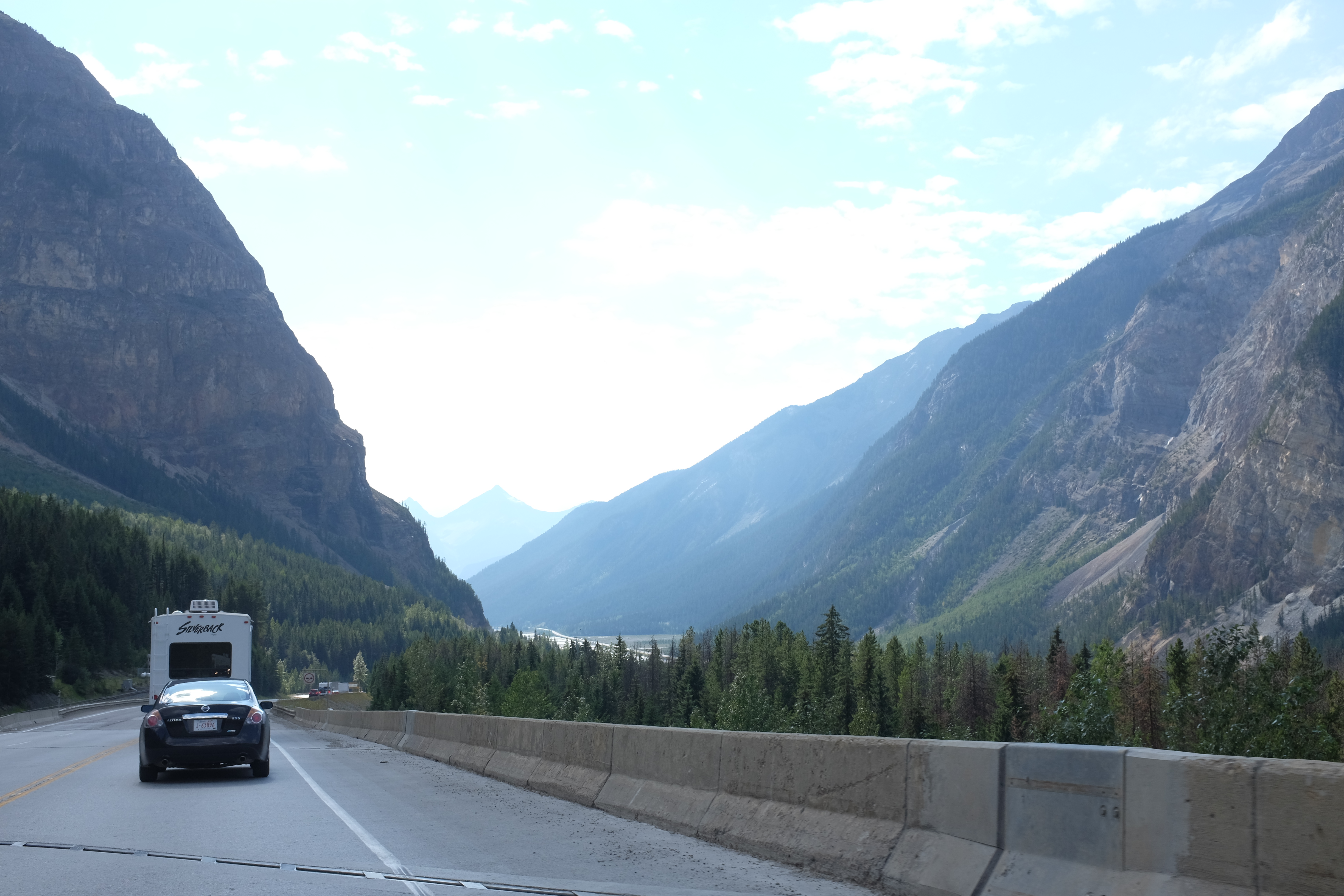The allure of British Columbia and Alberta


Jacqueline Salomé doesn’t think she’ll ever get tired of the view she has of the Rocky Mountains.
“There’s not many places where you could golf and ski in the same day, so it’s pretty incredible,” the recent Wilfrid Laurier University graduate said about her new home in Vancouver, British Columbia, where she’s attending Simon Fraser University (SFU) studying a master’s degree in international studies.
After graduating from Laurier, Salomé was pretty certain on where she wanted to go to do her master’s program — out west to the BC coast. Similarly to Salomé, many other recent grads and young people from Ontario are finding new places to settle out west, namely in the provinces of BC and Alberta.
And this is for a variety reasons, too. Whether it is work, an unfavourable situation in Ontario or an eagerness for a more outdoor lifestyle, some Ontario grads and young people are just finding the west coast more appealing.
“It’s pretty great, it’s a change of pace, which is really nice. It’s really free out here, I feel. I don’t know how to explain it — it’s just pretty great,” explained Cameron West, a young 23-year-old from Mississauga, Ontario who moved across the country to Vancouver with his girlfriend and recent Laurier graduate, Taylor Gayowsky.
A new career
While West essentially followed his girlfriend across the country since she accepted an offer from SFU to do her master’s, he has found a new home in Vancouver. It didn’t take him too long to find a job either; he now works as a sheet metal installer for a commercial construction company.
“Honestly, it was just sending an e-mail out,” added West about getting his job, noting there is a lot of trades work available in Vancouver, at least from what he has experienced so far.
“As long as you’re willing to work, you can find work. But in terms of the office and corporate world, I don’t have experience with that,” he added.
Although BC typically has the looks, Alberta definitely has the jobs. With an unemployment rate that hovers around 4.3 per cent — while Ontario’s is as high as 16 per cent for 15-24 year-olds —Alberta’s booming energy sector is definitely a pull factor for some young Ontarians.
“Trends have been quite steady over the years, there has been a net outflow of Ontario residents to Alberta and BC,” explained Robert Hogue, an economist at RBC in Toronto, noting that Saskatchewan is also an attractive province in terms of job prospects. “[BC, Alberta and Saskatchewan are] very strong magnets for interprovincial and international migrants as well.”
One of the reasons why the job market in Ontario is not performing as strongly as some of the western provinces is because Ontario is still recovering from the 2008 recession — a “deep hole” it has to dig itself out of, explained Hogue.
Although British Columbia isn’t fairing that much better than Ontario, according to a report released by TD Economics in June, it still places third behind Alberta and Saskatchewan in terms of average annual GDP by industry.
However, according to Statistics Canada, in 2011-12 Ontario, BC and Alberta were the top three provinces to have interprovincial migration.
“A lot of other people who have come out here from Ontario don’t appear to want to go back,” explained Gayowsky, noting that if she settled down in the near future it would be in BC and not Ontario. Salomé and West shared the same sentiment.
Former Wilfrid Laurier University Students’ Union president and director of member services, Kyle Walker, moved out to Calgary to take on a position at Proctor and Gamble. It wasn’t by choice, but the decision has suited him well, and many of his friends from Ontario and Laurier have also made the jump to Alberta.
While Walker plans on coming back to Ontario in a couple of years, he said many of friends probably wouldn’t.
“Of people that I know, and a lot of the people who have moved out here, a lot of them are here for the long-term. They bought houses, they’ve settled down here,” he said, adding that one of his roommates in Calgary is also a Laurier graduate. “It’s a great opportunity, and it’s a very different part of Canada, and very different way of life.
“They plan on sticking it out here and they really enjoy it.”
But Hogue stated that Ontario isn’t doing as bad as some people perceive it to be and that it has the opportunity to bounce back as a province.
“Ontario is a very dynamic economy and, like I said, it continues to attract international immigrants and migrants from other provinces,” he continued. “Ontario loses out to the west, but it continues to have a positive net inflow from Atlantic Canada and Québec, so those parts of a dynamic economy in Ontario continues to be a hotbed for new business and ventures.”
A different pace
For many, however, their decision to move out west wasn’t entirely based on job prospects. It was also to just get out of the increasingly claustrophobic environment of the Greater Toronto Area (GTA).
“I love the culture of the west coast. I had come out here when I was younger and I just kind of fell in love with it, there’s a lot of outdoors-y things to do,” said Kim Cope, a Mississauga native who moved to BC to attend the University of Victoria in 2009.
To Cope, there’s a different vibe to the west coast she couldn’t find back home in Ontario, and living close to a beach definitely helps.
“I live about five minutes from the beach and I go running on it everyday, so it’s pretty amazing,” she added.
With numerous parks around Vancouver, along with its close proximity to the water, the British Columbia coast has obtained a particular sense of athleticism for many people who live there.
“It’s a lot more athletic out here. Everyone runs, or bikes, or swims, or skis or snowboards. You’re always surrounded by people who are more physically active all the time than in Toronto,” Gayowsky claimed.
Toronto, which is easily one of North America’s largest metropolitan areas, is taking on the attitude of a quick, fast-paced city. That’s exactly what Cope and Salomé claimed they needed to get away from when they moved out to Vancouver.
“I really like Vancouver in comparison to Toronto. It just seems like a slower-paced city; it’s not as populated and it’s not as aggressive,” Salome continued.
The transit system, she added, is “phenomenal” in Vancouver compared to that of Toronto.
But that slowed-down pace isn’t unique to just Vancouver. Walker, who has now lived in Calgary since the beginning of April, enjoys that different pace, noticing the lack of “hustle and bustle” that was common in Toronto and southwestern Ontario.
Why now?
Moving your whole life across the country is a huge undertaking, especially for a young adult who has just completed university and it doesn’t come without its fair share of challenges. In addition to economic challenges, the emotional impact of leaving friends and family behind could be, for some, substantial.
“For my mom, it came to her as a surprise even though I told her in February that I was probably going to come out here and she still isn’t really coping with it very well, actually,” explained West when he moved to BC in late August. “That was a pretty big challenge just to go through that.”
When he moved to Calgary, Walker’s family equally shared feelings of excitement and melancholy, and he also joked that they were shocked because he was even leaving Laurier after being there since 2006.
But, like anything else, it’s a transition to a new place. And it can be extremely intimidating.
“Being out here in a new environment, it’s very hands-on and there’s a big learning curve, [but] it’s nice to kind of get away,” said Walker.
For Salomé, the transition, despite being to BC numerous times before because of her extended family, was difficult, mainly due to how quick it was in late August.
“I just tried to fit a lot of transition in a really brief period,” she explained. “Moving here, obviously, I wanted to see things, I wanted to do things, but I was kind of tied down with school, so it was difficult to balance. It took me kind of a month to find that rhythm.”
While moving out west wouldn’t be the best for all, if you are a recent grad considering the jump from one province to another, testing the waters may be a good idea.
“Pay the $500-$600, fly out here, stay a couple of days … make sure you want to come here,” encouraged Walker.
But, if you’re a young adult especially, now might be the time to make the ambitious move.
“Do it, like why not?” said Gayowsky.
“It’s not like we’re stuck here. If you’re curious about something, you’re not going to know what it’s like until you go yourself.”

